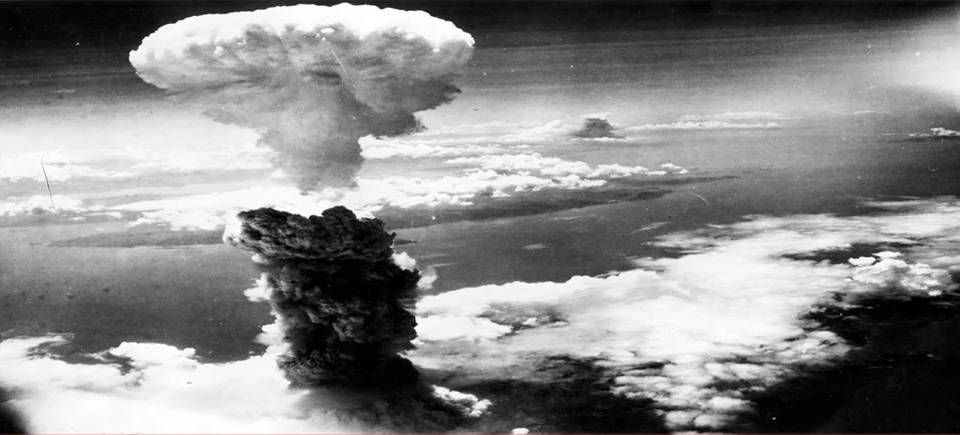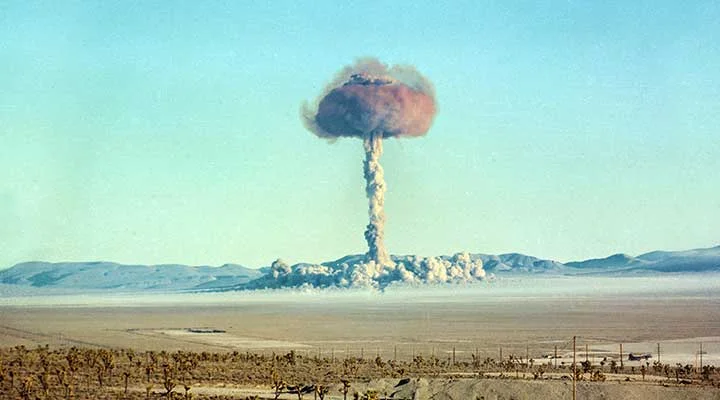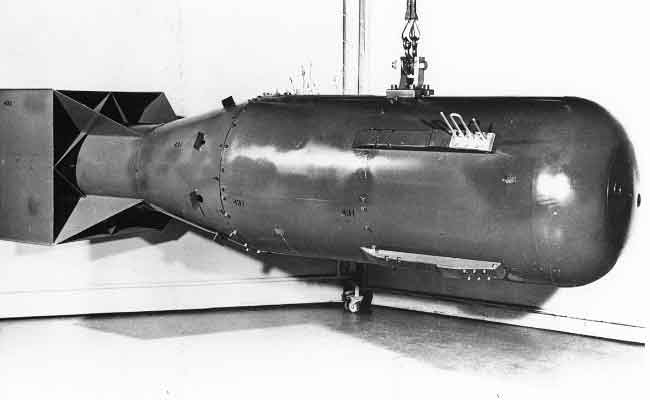Nuclear Weapon: The development of nuclear weapons represents one of the most significant advancements in modern human history. These powerful weapons have the ability to cause unimaginable destruction, and as such, their development, proliferation, and use have been heavily debated for decades. In this article, we will explore the history of nuclear weapons, their current status, and the potential implications of their continued development and use.
The Beginnings of Nuclear Weapons

The first nuclear weapon was developed by the United States during World War II as part of the Manhattan Project. The project was a top-secret effort that involved thousands of scientists, engineers, and military personnel. On July 16, 1945, the first successful test of a nuclear weapon took place in Alamogordo, New Mexico. The bomb, nicknamed “Trinity,” had the explosive power equivalent to 20,000 tons of TNT.
Following the success of the Trinity test, the United States dropped two atomic bombs on the Japanese cities of Hiroshima and Nagasaki in August 1945. The bombings killed an estimated 200,000 people and had a significant impact on the outcome of the war. Japan surrendered shortly after the bombings, bringing an end to World War II.
The Cold War and the Arms Race
The use of nuclear weapons in World War II marked the beginning of the nuclear age and a new era in international relations. Following the war, the United States and the Soviet Union emerged as the two superpowers, and their rivalry would shape global politics for the next several decades.
The Cold War was characterized by a nuclear arms race between the United States and the Soviet Union. Both countries developed large arsenals of nuclear weapons, with the United States stockpiling over 30,000 warheads at the height of the Cold War. The arms race led to a tense standoff between the two superpowers and raised the specter of a nuclear war that could potentially wipe out human civilization.
The Threat of Nuclear War Today
Although the Cold War ended with the collapse of the Soviet Union in 1991, the threat of nuclear war remains a major concern. There are currently nine countries that possess nuclear weapons: the United States, Russia, China, France, the United Kingdom, India, Pakistan, North Korea, and Israel (though Israel has not officially acknowledged its nuclear arsenal). The possession of nuclear weapons by multiple countries increases the risk of a nuclear war, either by accident or design.
Furthermore, the proliferation of nuclear technology has raised concerns about the potential use of nuclear weapons by non-state actors such as terrorist groups. The possibility of a nuclear attack by a terrorist group is a nightmare scenario that has led to increased security measures and efforts to prevent the spread of nuclear technology.
The Implications of Nuclear Weapons

The development and use of nuclear weapons have had significant implications for global politics and security. The threat of nuclear war has led to the establishment of international treaties and agreements aimed at preventing the use and proliferation of nuclear weapons.
The most significant of these agreements is the Treaty on the Non-Proliferation of Nuclear Weapons (NPT), which was signed in 1968. The treaty aims to prevent the spread of nuclear weapons and technology and encourages disarmament. The NPT has been successful in preventing the proliferation of nuclear weapons to some extent, but several countries have chosen not to sign the treaty, including North Korea, India, and Pakistan.
The development of nuclear weapons has also had implications for the environment and human health. The use of nuclear weapons in Hiroshima and Nagasaki caused significant damage to the cities and resulted in long-term health effects for survivors. The testing of nuclear weapons in the atmosphere during the Cold War led to radioactive contamination and had environmental impacts.
Read Also: Darwin’s Evolution Theory
![]()






3 thoughts on “Nuclear Weapon”